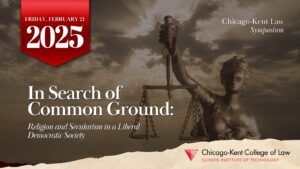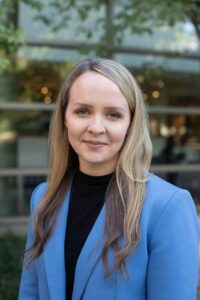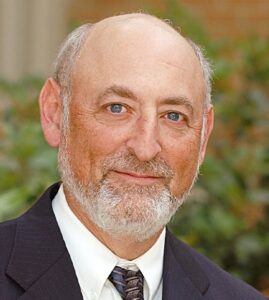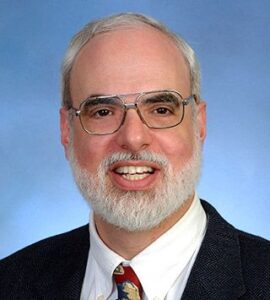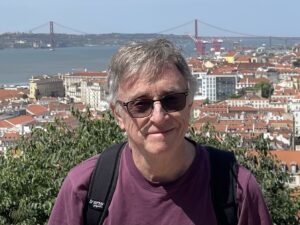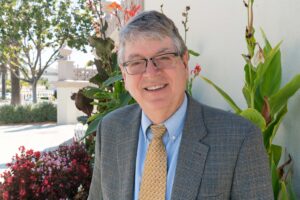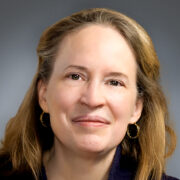In Search of Common Ground: Religion and Secularism in a Liberal Democratic Society
2025 Chicago-Kent Law Review Online Live Symposium
Symposium Editors
Steven J. Heyman, Chicago-Kent College of Law
Kathleen A. Brady, Emory University
Chicago-Kent College of Law
February 21, 2025
Contact: Francesca Sikora | fsikora@kentlaw.iit.edu
Over the past several decades, America’s religious diversity has continued to grow rapidly, as have the percentages of Americans who either are not religious or are not affiliated with a specific religious group or denomination. At the same time, America’s deepening cultural and political divisions have often followed these expanding religious fault lines. These developments have raised new challenges for defining the relationship between law, religion, and secularism under the Religion Clauses of the First Amendment and beyond. At the Chicago-Kent Law Review’s Symposium, leading law-and-religion scholars who represent a broad spectrum of views will explore a range of doctrinal issues – such as free exercise exemptions, government expression and funding, and the meaning of religion under the First Amendment – and will discuss how people who hold very different worldviews can live together in contemporary society.
The Symposium is free.
Please register here: https://forms.office.com/r/Cq7jXpdgpf
You may self-apply for CLE credit in a state of your choice; however, please note that approval is not guaranteed.
Schedule
Friday February 21, 2025 | 10:00 am – 4:55 pm EST | On Zoom
All times are Eastern Standard Time. Each panel will consist of three 15-minute presentations, after which there will be 30 minutes for questions and discussion.
10:00 – 10:15 am – Opening remarks
Chicago-Kent Dean Anita K. Krug, Law Review Editor-in-Chief Luke Winbery, and faculty editors Steven J. Heyman and Kathleen A. Brady
10:15 – 11:30 am – Panel I: Religious Exemptions
Stephanie H. Barclay, Georgetown, Religious Exemptions and Abortion Laws
Mark L. Movsesian, St. John’s, The Wedding Vendor Cases
Laura S. Underkuffler, Cornell, “Simple Accommodation”: A Solution for Conflicts Between Religious Claims and Secular Law?
Moderator: Sheldon H. Nahmod, Chicago-Kent
11:30 – 11:45 am – Break
11:45 am – 1:00 pm – Panel II: Church and State
Angela C. Carmella, Seton Hall, Catholic Institutions and the Religion Clauses: Faith in a Liberal Democracy
Richard W. Garnett, Notre Dame, The American Model of Church and State: Differentiation, Cooperation, and Healthy Secularity
Ira C. Lupu & Robert W. Tuttle, George Washington, The Ten Commandments in Louisiana Public Schools: A Study in the Survival of Establishment Clause Norms
Moderator: Lucien Ferguson, Boston College
1:00 – 2:00 pm – Lunch
2:00 – 3:15 pm – Panel III: History, Tradition, and the Religion Clauses
Thomas C. Berg, University of St. Thomas, The History/Tradition Approach and Protection of the Contending Sides in Polarized America
Kathleen A. Brady, Emory, History, Tradition and Finding Common Ground
Steven D. Smith, San Diego, Jurisdictional Diversity, Tradition, and the Religion Clauses
Moderator: Micah Schwartzman, University of Virginia
3:15 – 3:30 pm – Break
3:30 – 4:45 pm – Panel IV: Cultural Conflict and Common Ground
Alan E. Brownstein, UC Davis, Attempting to Protect the Liberty and Equality of Minority Faiths and Nonreligious Individuals When the Supreme Court Will Not Do So
Steven J. Heyman, Chicago-Kent, Religious Liberty and the Constitution
Andrew M. Koppelman, Northwestern, The Supreme Court’s Gay Rights-Religious Liberty Contortions
Moderator: Whittney Barth, Emory University Center for the Study of Law and Religion
4:45 – 4:55 pm – Concluding remarks
Presenters
Stephanie H. Barclay, Professor of Law and Faculty Co-Director of the Georgetown Center for the Constitution, Georgetown University Law Center.
Stephanie Barclay is a Professor of Law at Georgetown Law School, and the Faculty Co-Director of the Georgetown Center for the Constitution. Her research focuses on the role our different democratic institutions play in protecting minority rights, particularly at the intersection of free speech and religious exercise. Barclay‘s work is published or is forthcoming in leading journals such as the Harvard Law Review, the Chicago Law Review, the University of Pennsylvania Law Review, and the Yale Law Journal Forum. One of her articles was also selected for the 2020 Stanford/Harvard/Yale Junior Faculty Forum. Her work has been featured in many media outlets, including The New York Times, The Wall Street Journal, The Washington Post, USA Today, Bloomberg BNA, The Hill, and Law 360. And her work has also been cited by the U.S. Supreme Court.
Prior to joining Georgetown, Barclay was twice voted Professor of the Year. Barclay has also litigated constitutional cases at both the trial and appellate level, including before the U.S. Supreme Court. Barclay served as a law clerk to Judge N. Randy Smith on the U.S. Court of Appeals for the Ninth Circuit, and to Justice Neil M. Gorsuch of the U.S. Supreme Court.
Barclay is a Faculty Affiliate at the Constitutional Law Center at Stanford Law School; and she is a Nootbaar Fellow at the Nootbaar Institute on Law, Religion, and Ethics at Pepperdine University. She has served as the Chair for the AALS Law and Religion Section, and she currently serves as a Research Associate for the Centre for Constitutional Law and Legal Studies at the University of British Columbia, and on the Steering Committee for the Quill Project at Pembroke College, Oxford University. She graduated summa cum laude from BYU Law School, where she was elected to the Order of the Coif. She is completing a Ph.D. in Law at Oxford University as a Clarendon Scholar and a Tang Scholar.
Thomas C. Berg, James L. Oberstar Professor of Law and Public Policy, University of St. Thomas School of Law.
Thomas Berg is the James L. Oberstar Professor of Law and Public Policy at the University of St. Thomas School of Law (Minnesota), where he teaches constitutional law, religious liberty, intellectual property, and the religious liberty appellate clinic. He is the author or co-author of six books, including Religious Liberty in a Polarized Age (Eerdmans Publishing); The State and Religion in a Nutshell (West); Religion and the Constitution (Aspen Publishing, with McConnell and Lund); and Patents on Life: Religious, Moral, and Social Justice Aspects of Biotechnology and Intellectual Property (Cambridge University Press, with Cholij and Ravenscroft). He has also written or co-written more than 150 book chapters and scholarly and popular articles, and approximately 75 briefs in the Supreme Court and lower courts on freedom of religion and expression and other legal questions. His scholarship and advocacy have won awards from, among others, the Notre Dame Religious Liberty Initiative, the Seventh-Day Adventists, and the Immigrant Law Center of Minnesota (the latter for work helping to challenge President Trump’s Muslim-targeted travel ban). He has co-directed St. Thomas’s Murphy Institute for Catholic Thought, Law, and Public Policy and contributes regularly to SCOTUS Blog, Mirror of Justice, Christianity Today, and other venues. He has degrees from the University of Chicago (law, religious studies), Oxford University (philosophy and politics, Rhodes Scholar), and Northwestern University (journalism). He practiced litigation and nonprofit law in Chicago and was a law clerk on the U.S. Court of Appeals for the Fifth Circuit.
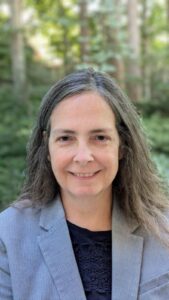
Kathleen A. Brady, Senior Fellow and McDonald Distinguished Fellow, Center for the Study of Law and Religion, Emory University.
Kathleen A. Brady is a Senior Fellow and McDonald Distinguished Fellow with the Center for the Study of Law and Religion at Emory University. Her scholarship focuses on the intersection of law and religion, including the First Amendment religion clauses, religion in public life, law and theology, and Catholic social thought. She is the author of numerous law review articles and book chapters, and her monograph The Distinctiveness of Religion in American Law: Rethinking Religion Clause Jurisprudence was the recipient of a book award from the Catholic Press Association in 2016.
Alan Brownstein, Professor of Law Emeritus, University of California Davis School of Law.
Alan Brownstein, a nationally recognized Constitutional Law scholar, taught Constitutional Law, Law and Religion, and Torts at UC Davis School of Law for 40 years. While the primary focus of his scholarship relates to church-state issues and free exercise and establishment clause doctrine, he has also written extensively on freedom of speech, privacy and autonomy rights, and other constitutional law subjects. His articles have been published in numerous academic journals including the Stanford Law Review, Cornell Law Review, UCLA Law Review, Northwestern Univ. Law Review, Minnesota Law Review and Constitutional Commentary. Brownstein received the UC Davis School of Law’s Distinguished Teaching Award in 1995, the UC Davis Distinguished Scholarly Public Service Award in 2008, and the Schwartz Levi Inn of Court Lifetime Achievement Award in 2021. He is a member of the American Law Institute and a Fellow of the Nootbaar Institute, Pepperdine School of Law.
Professor Brownstein has testified on several occasions before various California Senate Committees on legislation promoting religious liberty and bills that raise Establishment Clause concerns. His assistance is often sought by advocacy groups on issues relating to religious liberty and equality. He is a frequently invited lecturer at academic conferences and regularly participates as a speaker or panelist in law related programs before civic, legal, religious, and educational groups. He is the co-author of dozens of Findlaw columns and Justia/Verdict columns discussing a range of legal issues.
A graduate of Antioch College and Harvard Law School (where he served as a Case Editor of the Harvard Law Review), Brownstein was an attorney in general litigation and corporate practice with the law firm of Tuttle & Taylor in Los Angeles before joining the UC Davis law faculty. From 1977-78, he clerked for the Honorable Frank M. Coffin, Chief Judge of the U.S. Court of Appeals for the 1st Circuit in Portland, Maine.
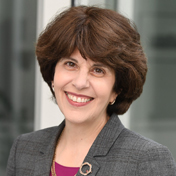 Angela Carmella, Professor of Law, Seton Hall University School of Law.
Angela Carmella, Professor of Law, Seton Hall University School of Law.
Angela C. Carmella, Professor of Law at Seton Hall University School of Law, Newark, NJ, has been teaching and writing since 1988 on the intersection of law and religion in its many dimensions, including the Religion Clauses of the First Amendment, Catholic Social Thought, religious land uses, and the connections among property and zoning laws, Christianity, and race. She co-edited Christian Perspectives on Legal Thought (with Michael McConnell and Robert Cochran) and served for over a decade on the Legal Scholars Board of DePaul Law School’s Center for Church/State Studies. Professor Carmella was a Visiting Scholar and Lecturer at Harvard Divinity School and a Fellow of Harvard’s Center for the Study of Values in Public Life, and is a long-time member of the Religious Liberty Committee of the Religious Freedom Center/Freedom Forum and the Editorial Council of Journal of Church and State. She was named Seton Hall’s 2022 Professor of the Year at the annual meeting of the Association of American Law Schools and in 2023 was awarded Seton Hall University’s Bishop Bernard J. McQuaid Medal for Distinguished Service. For the 2024-25 academic year, Professor Carmella is a Visiting Fellow of the Institute for Advanced Studies in Culture at the University of Virginia.
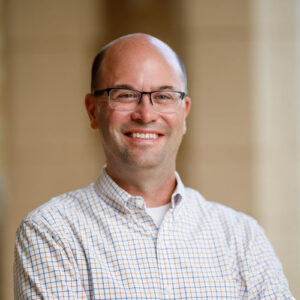
Richard W. Garnett, Paul J. Schierl/Fort Howard Corp. Professor of Law; Concurrent Professor of Political Science; and Director, Program on Church, State & Society, University of Notre Dame Law School.
Richard W. Garnett is the Paul J. Schierl Professor of Law and Concurrent Professor of Political Science at the University of Notre Dame. He teaches and writes about the freedoms of speech, association, and religion and about constitutional law more generally. He is a leading authority on questions and debates regarding church-state relations and the role of religious believers and beliefs in society. He has published widely on these matters and is the author of dozens of law-review articles and book chapters and the co-author of three books. Professor Garnett is regularly invited to share analysis and commentary in national print and broadcast media, and he contributes to several law-related blogs, including Mirror of Justice and PrawfsBlawg.
He is the founding director of Notre Dame Law School’s Program on Church, State, and Society, an interdisciplinary project that focuses on the role of religious institutions, communities, and authorities in the social order. He served on the Notre Dame Task Force on Catholic Education, is a Fellow of the University’s Institute for Educational Initiatives, and consults regularly with the Alliance for Catholic Education.
Professor Garnett clerked for the late Chief Justice of the United States, William H. Rehnquist, during the Court’s 1996 term and also for the late Chief Judge of the United States Court of Appeals for the Eighth Circuit, Richard S. Arnold. He earned his J.D. from Yale Law School in 1995 and his B.A., summa cum laude, from Duke University in 1990. He joined the faculty in 1999 after practicing law in Washington, D.C., with Miller, Cassidy, Larroca & Lewin.
He and his wife, Professor Nicole Stelle Garnett, live in South Bend, Indiana and have four children.
Steven J. Heyman, Professor of Law, Chicago-Kent College of Law, Illinois Tech.
Steven J. Heyman is a professor at Chicago-Kent College of Law, where he teaches Constitutional Law, First Amendment, and several first-year courses. His books include Hate Speech and the Constitution (Garland/Rutledge 1996) and Free Speech and Human Dignity (Yale University Press 2008). He has written extensively about the freedoms of expression and religion, including a series of recent articles on the history and theory of the Free Exercise Clause as well as on the clash between religious liberty and civil rights in cases like Masterpiece Cakeshop Ltd. v. Colorado Civil Rights Commission.

Andrew M. Koppelman, John Paul Stevens Professor of Law, Northwestern University Pritzker School of Law.
Andrew Koppelman is John Paul Stevens Professor of Law, Professor (by courtesy) of Political Science, and Philosophy Department Affiliated Faculty at Northwestern University. The argument of his 1988 law student note, that discrimination against gay people is illegal sex discrimination, was adopted by the Supreme Court in Bostock v. Clayton County (2020). He received the Walder Award for Research Excellence from Northwestern, the Hart-Dworkin award in legal philosophy from the Association of American Law Schools, and the Edward S. Corwin Prize from the American Political Science Association. He has written more than 150 scholarly articles and eight books, most recently Burning Down the House: How Libertarian Philosophy Was Corrupted by Delusion and Greed (St. Martin’s Press, 2022). His column appears regularly at The Hill. You can find his recent work at andrewkoppelman.com.
Ira C. Lupu, F. Elwood and Eleanor Davis Professor Emeritus of Law, George Washington University School of Law.
Ira “Chip” Lupu is the F. Elwood & Eleanor Davis Professor of Law Emeritus at George Washington University. Professor Lupu is a nationally recognized scholar in constitutional law, with an emphasis in his writings on the Religion Clauses of the First Amendment. He is the author of a wide variety of law journal articles, including many co-authored with his colleague Professor Robert Tuttle. Lupu and Tuttle are the co-authors of Secular Government, Religious People (2014) and other highly respected works in the field.
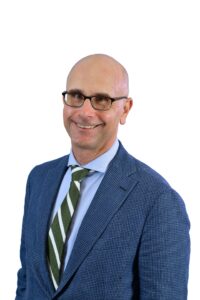 Mark L. Movsesian, Frederick A. Whitney Professor of Contract Law and Director, Mattone Center for Law and Religion.
Mark L. Movsesian, Frederick A. Whitney Professor of Contract Law and Director, Mattone Center for Law and Religion.
Mark Movsesian is the Frederick A. Whitney Professor and Director of the Mattone Center for Law and Religion at St. John’s Law School. His work has appeared in the Harvard Law Review, the Oxford Journal of Law and Religion, the Journal of Law and Religion (Cambridge), the Harvard Journal of Law and Public Policy, and many other journals, and has been cited by the United States Supreme Court. He has been a visiting professor at Notre Dame and Cardozo Law Schools and has delivered papers at numerous workshops in the United States and Europe.
He graduated summa cum laude from Harvard College and magna cum laude from Harvard Law School, where he was an editor of the Harvard Law Review and a recipient of the Sears Prize, awarded to the two highest-ranking students in the second-year class. He clerked for Justice David H. Souter of the Supreme Court of the United States and served as an attorney-advisor in the Office of Legal Counsel at the United States Department of Justice.
He writes for First Things, the Library of Law and Liberty, and the Volokh Conspiracy, and hosts the Legal Spirits podcast and a YouTube video series, Landmark Cases in Religious Freedom.
Steven D. Smith, Warren Distinguished Professor of Law; Co-Executive Director, Institute for Law & Religion; and Co-Executive Director, Institute for Law & Philosophy, University of San Diego Law School.
JD, 1979, Yale University, BA, 1976, Brigham Young University. Areas of Expertise: Constitutional Interpretation, Torts, Jurisprudence and Legal Theory, Law and Religion, Religious Freedom/Separation of Church and State, Federal Courts, Constitutional Law.
Smith taught at the University of Notre Dame Law School, the University of Colorado, School of Law, and the University of Idaho. He was a visiting professor at the University of Michigan and the University of Virginia. Smith joined the USD School of Law faculty in 2002.
Smith was the Robert and Marion Short Professor of Law at the University of Notre Dame, Law School and was the Byron R. White Professor of Law at the University of Colorado, School of Law. He is the co-director of USD’s Institute of Law and Religion. In 2021-22, Smith was named the Herzog Endowed Scholar.
Scholarly Work: Christians And/As Liberals?, 98 Notre Dame Law Review 1497 (2023), The Disintegrating Conscience and the Decline of Modernity: Catholic Ideas for a Secular World (University of Notre Dame Press 2023), A Principled Constitution?: Four Skeptical Views (Rowman & Littlefield 2022) (with Maimon Schwarzschild, Larry Alexander & James Allan), Michael Perry, Prophet of Progressive Collapse, 23 Journal of Contemporary Legal Issues 505 (2022), Presently Absent, or Absently Present? The Curious Condition of Natural Law, 67 American Journal of Jurisprudence 119 (2022), Fictions, Lies, and the Authority of Law (Notre Dame Press 2021), New (Old) Foundations for Religious Freedom, 36 Journal of Law and Religion 175 (2021), The Case of the Exemption Claimants: Religion, Conscience, Identity, 2019 Brigham Young University Law Review 339 (2019), Pagans and Christians in the City: Culture Wars from the Tiber to the Potomac (Eerdmans Publishing 2018), Wisdom and Reason in Law, 88 University of Colorado Law Review 301 (2017), The Tortuous Course of Religious Freedom, 91 Notre Dame Law Review 1553 (2016), Die and Let Live? The Asymmetry of Accommodation, 88 Southern California Law Review 703 (2015), Is God Irrelevant?, 94 Boston University Law Review 1339 (2014), The Rise and Decline of American Religious Freedom (Harvard University Press 2014).
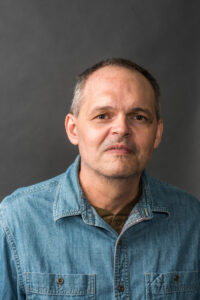 Robert W. Tuttle, David R. and Sherry Kirschner Berz Research Professor of Law and Religion, George Washington University School of Law.
Robert W. Tuttle, David R. and Sherry Kirschner Berz Research Professor of Law and Religion, George Washington University School of Law.
Robert Tuttle is the David R. and Sherry Kirschner Berz Research Professor of Law and Religion at the George Washington University Law School, where he has taught since 1994, as well as Professor of Religion (by courtesy) in the University’s Columbian College of Arts & Sciences. After graduating from GW Law School, he earned a Ph.D. in religious ethics from the University of Virginia; he also holds a BA from the College of William & Mary, and a masters degree from the Lutheran School of Theology at Chicago. With Ira C. Lupu, Tuttle was the co-director of the Legal Tracking Project of the Roundtable on Religion and Social Welfare Policy, which studied government funding of religious social services. He is the author or co-author of numerous articles and reports in the fields of church-state law and legal ethics, along with the book Secular Government, Religious People (Eerdmans, 2014). From 1999-2024, Bob served as legal counsel to the Washington, DC, Synod of the Evangelical Lutheran Church in America. He currently serves as senior counsel to the General Counsel of the ELCA, where he focuses on questions of constitutional law that relate to the church organization.
Laura S. Underkuffler, J. DuPratt White Professor of Law, Cornell Law School.
Laura S. Underkuffler is J. DuPratt White Professor of Law at Cornell University. She has also taught at Duke University, Harvard University, the University of Pennsylvania, Georgetown University, and the University of Maine. She has published widely in the United States and abroad in the fields of religion and law, property theory, constitutional law, and the role of moral decision making in law. She has also been involved in international projects concerning the problem of corruption, the erosion of moral norms, and democratic governance.
Moderators
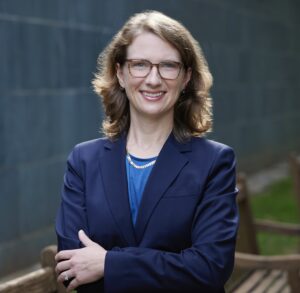 Whittney Barth, Executive Director and Charlotte McDaniel Scholar, Center for the Study of Law and Religion, Emory University.
Whittney Barth, Executive Director and Charlotte McDaniel Scholar, Center for the Study of Law and Religion, Emory University.
Whittney Barth is the Executive Director and Charlotte McDaniel Scholar at the Center for the Study of Law and Religion at Emory. She also teaches Employment Law and courses in law and religion at Emory Law School. Barth joined CSLR after nearly three years as a litigator with a nationally recognized plaintiffs’ firm where she worked primarily on employment discrimination matters. She is a graduate of the University of Chicago Law School and was Executive Comments Editor of the Chicago Journal of International Law. She earned her Master of Divinity from Harvard Divinity School and her Bachelor of Arts magna cum laude from Miami University, where she completed a double major in Comparative Religion and American Studies and a minor in Political Science. Her scholarship appears in the ABA Journal of Labor and Employment Law (forthcoming), the Notre Dame Law Review (forthcoming), the Chicago Journal of International Law, and the University of Illinois Law Review Online. She has also written for Law360 and Bloomberg Law and co-authored book chapters in volumes published by Oxford University and Georgetown University presses.
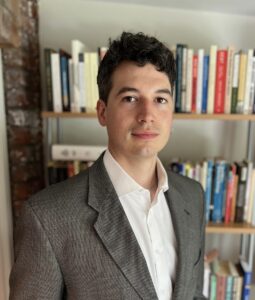 Lucien Ferguson, Drinan Visiting Assistant Professor, Boston College.
Lucien Ferguson, Drinan Visiting Assistant Professor, Boston College.
Professor Lucien Ferguson is currently the 2023-2025 Drinan Visiting Assistant Professor at Boston College Law School and will be joining Chicago-Kent College of Law this summer as an Assistant Professor of Law.
Professor Ferguson’s research investigates how law and legal institutions shape socio-economic opportunity and democratic governance in the United States, with a particular focus on constitutional law, local government law, and property law.
He completed both his J.D. and Ph.D. (Political Science) at Northwestern University. His doctoral dissertation, The Spirit of Caste: Recasting the History of Civil Rights, was awarded the American Political Science Association’s 2024 Edward S. Corwin Award for Best Doctoral Dissertation in the Field of Public Law. His scholarship is either published or forthcoming in Cardozo Law Review, Mississippi Law Journal (invited symposium contribution), William & Mary Bill of Rights Journal (invited symposium contribution), and Political Theory.
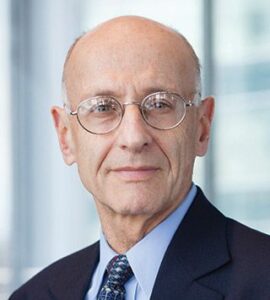 Sheldon H. Nahmod, University Distinguished Professor of Law Emeritus, Chicago-Kent College of Law, Illinois Tech.
Sheldon H. Nahmod, University Distinguished Professor of Law Emeritus, Chicago-Kent College of Law, Illinois Tech.
Sheldon H. Nahmod is a well-known expert on constitutional law, the First Amendment, civil rights and liberties and the law of Section 1983. He is the author of Civil Rights and Civil Liberties Litigation: The Law of Section 1983 (202425)(West/Westlaw); A Section 1983 Civil Rights Anthology (1993); a casebook, Constitutional Torts (6th ed. Forthcoming 2025, with Wells, Smith and Smith-Frelich); and numerous law review articles. He has written many certiorari petitions and amicus briefs in the Supreme Court. He has also successfully argued civil rights cases in the Supreme Court and the First, Seventh, Eighth and Tenth Circuits, and consults nationally with attorneys on civil rights, civil liberties and constitutional law issues. In addition, he has lectured on civil rights and civil liberties matters to federal judges and attorneys throughout the country, including organizing and speaking at Chicago-Kent’s own annual Conference on Section 1983 for 40 years. He lectures to lay groups on constitutional law and the First Amendment, most recently on the Religion Clauses.
Professor Nahmod graduated from the University of Chicago, Harvard Law School and the University of Chicago Divinity School (1996). He practiced with a corporate law firm in Chicago and was a legal services staff attorney before entering academia. He also was a teaching fellow at Harvard Law School, where he earned an LL.M. After joining Chicago-Kent, he served as associate dean for three years, and was named IIT University Distinguished Professor in 1992. Over the years he has won awards for his teaching, most recently the Brill Award from the Student Bar Association. In 2001, he received the Jefferson Fordham Lifetime Achievement Award for his work in Section 1983 jurisprudence from the American Bar Association’s Section on State and Local Government Law. In 2018, he received the Abner Mikva Award from the Chicago Chapter of the American Constitution Society for his contributions to civil rights and civil liberties. Also in 2018, he was named University Distinguished Professor Emeritus.
Professor Nahmod blogs on Section 1983, constitutional law, the First Amendment and other law-related topics at nahmodlaw.com.
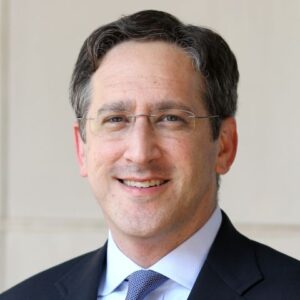 Micah Schwartzman, Hardy Cross Dillard Professor of Law and Director, Karsh Center for Law and Democracy, University of Virginia.
Micah Schwartzman, Hardy Cross Dillard Professor of Law and Director, Karsh Center for Law and Democracy, University of Virginia.
Micah Schwartzman is the director of the Karsh Center for Law and Democracy and the Hardy Cross Dillard Professor of Law. A scholar who focuses on law and religion, jurisprudence, political philosophy and constitutional law, Schwartzman joined the UVA Law faculty in 2007.
Schwartzman received his B.A. from the University of Virginia and his doctorate in politics from the University of Oxford, where he studied as a Rhodes Scholar. During law school, he served as articles development editor of the Virginia Law Review. Schwartzman then clerked for the U.S. Court of Appeals for the Fourth Circuit and was a postdoctoral research fellow at Columbia University’s Society of Fellows in the Humanities.
Schwartzman’s work has appeared in the Harvard Law Review, University of Chicago Law Review, Virginia Law Review, Supreme Court Review, Law & Philosophy, and Political Theory, among others. He has published opinion pieces in The New York Times, Washington Post, The Atlantic, Slate, The New Republic, and Vox. He co-edited The Rise of Corporate Religious Liberty (Oxford University Press) and is co-authoring materials for a casebook on Constitutional Law and Religion.
A member of the American Law Institute, Schwartzman is a past chair of the AALS Section on Law and Religion, currently serves on the Board of Academic Advisors for the American Constitution Society and is the Secretary-Treasurer of NOMOS: The American Society for Political and Legal Philosophy. He has been a visiting professor at Columbia Law School, UCLA Law School and the Hebrew University of Jerusalem.
